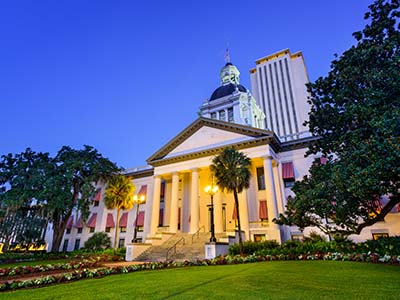On December 27, 2020, President Trump signed H.R. 133, the Consolidated Appropriations Act (CAA) 2021 into law. The CAA combines the federal budget for the fiscal year 2021 with a COVID-19 relief package, which includes increased funding for substance abuse and mental health services. The increases are in addition to funding previously approved for the fiscal year 2021.
The National Alliance on Mental Health (NAMI) sees the passage of the CAA as a huge win for mental health, especially in this time of escalating mental health problems related to the pandemic. The CAA provides benefits to those with mental health issues and also increases resources for organizations delivering mental health services.
On January 15, 2021, the Substance Abuse and Mental Health Services Administration (SAMHSA) released a fact sheet detailing the amount of money in the COVID-19 relief portion of CAA 2021 earmarked to support and expand mental health and substance abuse services and programs.
While SAMHSA has not yet announced how this money will be allocated, all states, including Florida, will benefit from a portion of these funds.
COVID-19 Relief
The COVID-19 relief portion of the CAA specifies $4.25 billion for SAMHSA to distribute to specified programs, including at least $125 million to tribal organizations, urban Indian health organizations, or providers of health services to tribes. Included in the SAMHSA allocations are:
- $1.65 billion for community mental health services
- $600 million for certified behavioral health centers
- $1.65 billion for substance use prevention and treatment grants
- $50 million for suicide prevention programs
- $240 million in grants for homelessness and other emergencies
- $50 million for Project AWARE (Advancing Wellness and Resiliency in Education), a school-based mental health support program for children
- $10 million for the National Child Traumatic Stress Network
2021 Federal Budget
Besides an increase in COVID-19 relief funding, the CAA also increased the federal budget for fiscal year 2021 in several key mental health and substance abuse programs within the Department of Justice, Housing and Urban Development, Substance Abuse and Mental Health Services, and the Veterans Administration.
The 2021 budget includes increased funds for the following programs and services.
- Mentally Ill Offender Treatment and Crime Reduction Act (MIOTCRA)
- Officer training on how to respond to those with mental illness or disabilities
- Veteran services, including health and suicide prevention programs
- Housing assistance for the homeless and those with disabilities
- Community mental health services block grant, including an additional $35 million block grant for crisis services
- National Suicide Prevention Lifeline
See the National Alliance on Mental Health (NAMI) news for more details on the impact of CAA 2021 on mental health issues.
Florida Mental Health Funding Increases for 2021
Florida’s Mental Health Assistance Allocation
On December 22, 2020, Florida First Lady Casey DeSantis announced Governor DeSantis is increasing Florida’s Mental Health Assistance Allocation by $25 million, for a total of $100 million, “to ensure schools are equipped with the resources to provide meaningful help.”
CARES for Mental Health and Substance Abuse Services
The Governor and First Lady also announced $23 million in federal Coronavirus Aid, Relief, and Economic Security (CARES) dollars to enable Florida’s Department of Children and Families “to provide mental health and substance abuse treatment for Floridians in need.”
The First Lady explained that $18 million of the $23 million is dedicated to programs that provide crisis intervention for youth and adults with severe mental illness.
CARES for Housing Instability and Homelessness
On January 14, 2021, Governor DeSantis announced that Florida received $85.8 million in CARES Act funding to address housing instability and homelessness across the state. The state will use the funds to “provide rental assistance, support emergency shelters, and conduct street outreach programs to connect unsheltered individuals experiencing homelessness with local housing and other essential services,” according to the Governor’s office.
Florida 2-1-1 System
The Governor is also working to earmark a portion of a $4.9 million federal grant to provide peer-to-peer counseling services for Florida’s first responders through the state’s 211 support system. Florida’s 211 system is a free, confidential crisis line that connects callers with needed resources including food, clothing, shelter and housing, financial assistance, disaster services, health care services, substance abuse, and mental health services, and more.
Hope for Healing Initiative
In May 2019, First Lady Casey DeSantis announced the formation of the Hope for Healing Initiative, a multi-agency mental health and substance abuse campaign. Through a collaboration of government, community, and private partners, the campaign seeks to better serve Florida’s adults and children struggling with mental health and substance abuse issues.
In a December 2020 news release, the First Lady stated her intention to continue her work on the Hope for Healing initiative, saying she looks forward to “major announcements in the New Year as we continue to address the emotional well-being of Floridians, especially in light of this pandemic.”
Technology Access
In October 2020, the First Lady announced a partnership between the Department of Education and the Department of Children and Families to provide about 1,000 technology devices to foster children in Florida to enable them to take part in educational programs.
The First Lady also announced a public-private partnership with T-Mobile to provide 100GB of free internet access to about 600,000 Florida families so students can do school-related work at home.
Turning Point of Tampa’s goal is to always provide a safe environment and a solid foundation in 12-Step recovery, in tandem with quality individual therapy and groups. We have been offering Licensed Residential Treatment for Addiction, Eating Disorders and Dual Diagnosis in Tampa since 1987.



